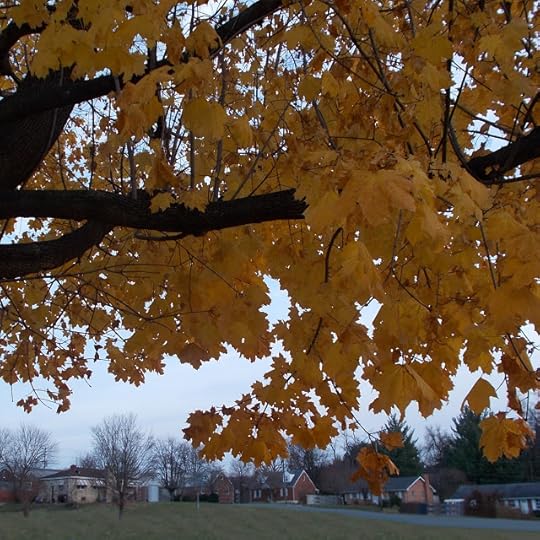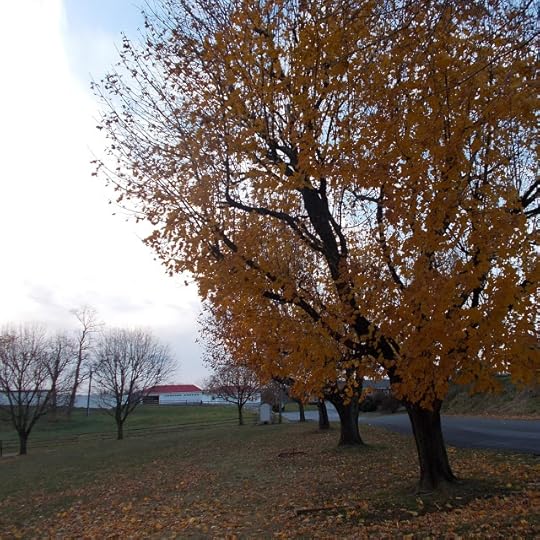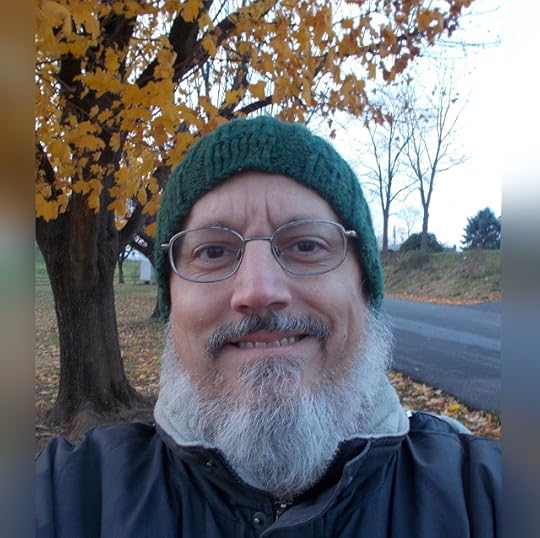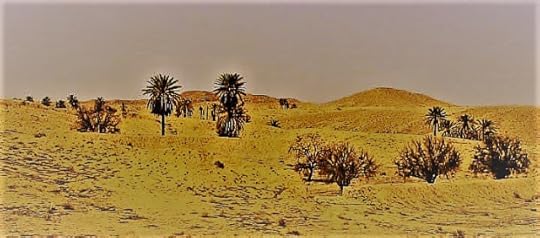John Janaro's Blog, page 222
December 8, 2016
The Matchbreaker: Christina Grimmie's First and Last Movie
 We watched The Matchbreaker the other night. I didn't really expect much from this indie film. The trailers seemed a bit awkward to me. But I knew it could not possibly disappoint me. Christina Grimmie sings and walks around and breathes in this movie. That alone makes it worth watching.
We watched The Matchbreaker the other night. I didn't really expect much from this indie film. The trailers seemed a bit awkward to me. But I knew it could not possibly disappoint me. Christina Grimmie sings and walks around and breathes in this movie. That alone makes it worth watching.In fact, The Matchbreaker is actually a cute, entertaining romantic comedy. It is, of course, Christina Grimmie's only movie, filmed last year. Though she didn't live to see the big screen premiere and limited theatrical run this Fall, she did get to see the final cut some weeks prior to her murder at the hands of a deranged gunman after her concert in Orlando, Florida on June 10, 2016.
The movie has various light-hearted endearing facets so that you can enjoy it without being entirely heartbroken anew over the tremendous loss of this magnificent young woman (even if, like us, you wouldn't have even heard of the movie, much less watched it, if it weren't for her). She sings parts of four classic-style jazz songs flawlessly and gently (and sings the full songs on the soundtrack). She also plays her role very well, but the goofy antics of Wesley Elder's character and some of the supporting roles draw more attention and are on the whole a nice surprise.
The Matchbreaker is just a light comedy that doesn't try to be anything more. Still, it's Christina Grimmie and if you love her you will feel heartbroken when you watch it, but not entirely heartbroken. You will laugh, and be grateful for yet another precious gift from her, another part of her cherished legacy.
Christina is not the center of this movie. She shines the spotlight on others here... but of course, that's what she always did. That, ultimately, is what made her so great: she always shined her light outward, beyond herself.
Published on December 08, 2016 20:09
December 7, 2016
The Last Lonely Leaves of Autumn
As December begins, most of the trees are done shedding their leaves, but these big maples are still hanging on for a little longer.


Here's me and one of the last leafy maple trees. I've been letting the beard grow, but it might be time for a trim. Geepers, there's a lot of... umm... "silver" hair there. Some folks have said that if I let it grow a bit longer, I could pass for Santa!



Here's me and one of the last leafy maple trees. I've been letting the beard grow, but it might be time for a trim. Geepers, there's a lot of... umm... "silver" hair there. Some folks have said that if I let it grow a bit longer, I could pass for Santa!

Published on December 07, 2016 20:05
December 6, 2016
Saint Nicholas Day
HAPPY SAINT NICHOLAS DAY!
"We humbly implore your mercy, Lord:
protect us in all dangers
through the prayers of the bishop Saint Nicholas,
that the way of salvation may lie open before us."
~Collect for the Feast of Saint Nicholas

"We humbly implore your mercy, Lord:
protect us in all dangers
through the prayers of the bishop Saint Nicholas,
that the way of salvation may lie open before us."
~Collect for the Feast of Saint Nicholas

Published on December 06, 2016 20:33
December 5, 2016
Someone is Present Here and Now, and Loves You
 We are made for love. We want to love one another with all sincerity and earnestness. In fact we are called to real self-giving love, here and now, in the circumstances of our daily life.
We are made for love. We want to love one another with all sincerity and earnestness. In fact we are called to real self-giving love, here and now, in the circumstances of our daily life.But here is the rub: we seem to want anything other than the actual life we have, with its often obscure challenges and demands. Why do we always look for ways to escape?
Lets face it. When we hear about "real loving," we say "yes, of course, that's wonderful," and yet we still try to run away, or else we chafe under the weight of what seems like an imposed task. Why are we burdened? What are we afraid of?
Perhaps we are afraid to love because we think we have to make it happen by ourselves. We find no power within ourselves to love. We want to, but we can't. Everything in us feels bent, distorted, tainted by the monster of our ego. And we think that all we have is our own brokenness.
But this is not true. We are not alone. First and fundamentally, before and within everything else, we are loved. We begin to give ourselves in love when we say "yes" to the love that is being given to us.
There is a Someone, right now, who says to each and every one of us, "I love you. You are precious to me.You are beautiful." We cannot begin to imagine how much we are loved and cherished in this very moment.
Our hearts are not lying to us. The Other we are seeking is already with us, and begs us to open our hearts.
"You are beautiful."
"But I don't deserve to be loved," you say. "I am full of my own guilt."
But you are loved by Someone who is forgiveness and mercy, who will forgive everything. Everything.
Let yourself be forgiven and empowered by the One who has come into the world and history so as to be present in your real life, to be with you.
Open your heart. Let yourself be loved.
Published on December 05, 2016 19:59
December 3, 2016
Come to Our Help
Stir up your power, O Lord,
and come to our help with mighty strength,
that what our sins impede
the grace of your mercy may hasten.
Through our Lord Jesus Christ, your Son,
who lives and reigns with you in the unity of the Holy Spirit,
one God for ever and ever.
~Collect from the First Week of Advent
and come to our help with mighty strength,
that what our sins impede
the grace of your mercy may hasten.
Through our Lord Jesus Christ, your Son,
who lives and reigns with you in the unity of the Holy Spirit,
one God for ever and ever.
~Collect from the First Week of Advent
Published on December 03, 2016 19:47
December 2, 2016
The Lord of Every Heart
 I believe that Jesus is always, everywhere, trying to draw every human person to Himself by grace. So where people do not know Him, He works through whatever is true and good in their lives, their hopes, their experience, their prayers.
I believe that Jesus is always, everywhere, trying to draw every human person to Himself by grace. So where people do not know Him, He works through whatever is true and good in their lives, their hopes, their experience, their prayers.I sometimes wonder if there are a great many people--simple people especially, poor people, suffering people--who are very close to Christ, who really do know Him and love Him in their hearts, even if they can’t express it, even if it's a secret, even if it's so secret that they themselves don't "know it" in a discursive, reflexive way.
If they love God as the Mystery beyond their own ideas and understanding, it must be Jesus who is empowering that love and drawing it to Himself.
And I am not saying this as a way of saying, "in the human competition over which religion is true, my religion wins!" No! How silly! The point is not about a controversy between different positions or different cultures.
It's about a fact: Jesus is God! He is the Lord of every heart. Wherever there is any good, He is at work.
How could it not be true? Jesus really is God--we must never forget this. This is not "our position"--this is a fact; the central fact of the whole universe and all of history and every person's actual life. It's really true. To affirm it is to recognize a fact. If He is really God then He is really at work, in every person, in every circumstance. Because He loves us. Really!
What a blessing it is to KNOW Him, to recognize His face! The God whom my heart longs for, whom I find a taste of in everything that is beautiful and good: that God has shown His face. To know Him means that He has said, to us, personally, "follow me!"
He calls every person to follow Him, on a journey that begins from many different (and sometimes distant) places. He wants us Christians to be His witnesses, to go onto all the roads and meet the others in their searching, and to walk with them.
Published on December 02, 2016 20:38
December 1, 2016
One Hundred Years Ago: A Single Shot in the Desert

December 1, 1916 was to all appearances not a particularly eventful day in the history of World War I. On the Western Front, the battle of the Somme was over and England was in the midst of forming a new government in Parliament. The slaughter at Verdun was nearly exhausted at last. On the Eastern Front, the Russians and the Germans fought on, while the Habsburg Federation was less than two weeks into the reign of Karl I, last of the Emperors and the only ruler in Europe actively dedicated to seeking peace.
The desert sands of what was then called "French West Africa" were mostly quiet. French troops were needed elsewhere, and had moved back from the more remote outposts of the Sahara, which were left for a time at the mercy of tribal militias, partisans, and bandits. At a ramshackle fort in Tamanrasset in Algeria, the only Frenchman remaining was an old half-crazy hermit.
His name was Charles de Foucauld.
 On this strange day, one hundred years ago, bandits raided the fort where Charles was watching over the food supply of the Taureg people and their black African slaves. The bandits tried to capture the defenseless Frenchman, but in the course of their own confusion one of them decided simply to shoot him in the head.
On this strange day, one hundred years ago, bandits raided the fort where Charles was watching over the food supply of the Taureg people and their black African slaves. The bandits tried to capture the defenseless Frenchman, but in the course of their own confusion one of them decided simply to shoot him in the head.There was scarcely a place in the European-dominated "world" more remote than Tamanrasset, more seemingly insignificant for the emerging era with its turmoil and its new kinds of power that were destined to be the engines of genocidal wars, totalitarian police states, and unimaginable riches.
But in fact, in the blood-soaked sand of this forgotten place, the man who called himself the "universal brother" fell into the earth like a grain of wheat on December 1, 1916.
His ten years among the Taureg came to an end: ten years of unconditional love and service to people on the margins of the world, with no program other than sharing their lives and being their little brother. It was enough that they were human, and that Jesus had identified Himself with them. Whatever you do to the least of these, you do to me.
 A hundred years later, this way of loving, this brotherhood of service and solidarity, remains the great hope for the peaceful and constructive use of the unprecedented power that has connected and woven together the entire planet and the whole human race. But this love is possible only if it opens itself to the One who is greater than all our power, who gives us a reason to want to live and work together as brothers and sisters, in peace.
A hundred years later, this way of loving, this brotherhood of service and solidarity, remains the great hope for the peaceful and constructive use of the unprecedented power that has connected and woven together the entire planet and the whole human race. But this love is possible only if it opens itself to the One who is greater than all our power, who gives us a reason to want to live and work together as brothers and sisters, in peace.Blessed Charles de Foucauld is sometimes viewed as a pioneer of interreligious dialogue and coexistence between peoples. This description alone falls short, however, of expressing the heart of his mission and charism. For Charles the heart of dialogue and coexistence is love, and the heart of love is Jesus: Jesus in the Eucharist, Jesus in the fullness of His self-emptying gift, and Jesus in every person.
Published on December 01, 2016 20:30
November 30, 2016
It's Finally Feeling Like November, and....
Now this looks like NOVEMBER! (Finally, on the last day of November.) Gray skies and rain on bare branches.


Published on November 30, 2016 20:58
November 29, 2016
Dorothy Day and the Politics of Mercy
 Dorothy Day often joined the picket lines of workers who sought to secure just wages from their employers and recognition of their dignity. Once she was asked what this public protesting had to do with her work of serving the poor and spreading God's mercy. She said, "I am doing the works of mercy right now: instructing the ignorant and admonishing sinners."
Dorothy Day often joined the picket lines of workers who sought to secure just wages from their employers and recognition of their dignity. Once she was asked what this public protesting had to do with her work of serving the poor and spreading God's mercy. She said, "I am doing the works of mercy right now: instructing the ignorant and admonishing sinners."On November 29, 1980, Dorothy Day came to the end of her very unconventional earthly pilgrimage. Today marks the anniversary of her death, and is therefore a special day to remember her singular witness.
During her long life, the founder of the Catholic Worker devoted herself to the practice of the works of mercy on the margins of an America that many of us today look back on with nostalgia. We see it as a time of innocence and decency.
She didn't.
Dorothy Day was deeply critical of American society in the 1930s, 40s, and 50s (and then, of course, the 1960s and 70s too) in ways that are often beguiling to both "conservatives" and "liberals" in this country. Her passionate convictions defy all the standard classifications.
Some of us would like to see Dorothy beatified for her heroic work with the poor, while setting aside her judgments about the society around her as naive and idiosyncratic. "Saints can be wrong, or not well informed. They are not infallible," we say.
Fair enough. I certainly wouldn't argue that all her particular judgments were correct, or that all the causes she supported upheld justice the way she thought they did. What interests me is the position from which she looked at secular society. Her judgment on society flowed from her concrete adherence to the Person of Jesus Christ in the Church, especially His presence among the poor.
She was thus neither a "right winger" nor a "left winger." Nor is it sufficient to explain her views by saying she was "liberal" on economic and social justice and "conservative" on liturgy, sexual morality, and fidelity to Church teaching.
What must be said is that she judged the society of her time (even in its political structures) from her experience of belonging to Christ in the Church. She was radical in the sense that her whole life came from "the roots," from the Person of Jesus in the communion of the Church.
She transcended the dialectic of the "leftist ideology" and "rightist ideology" that constantly battled against each other and fed off each other. Her politics was what Brent Bozell the elder called "the Politics of Mercy."
This "politics of mercy" is based on respect and love for the human person created by God and redeemed by Christ, the human person whom Christ identifies with himself--"You did it to me." It involves the work of building a community of persons, building the relationships of love that bring persons to their fulfillment and that can also really shape the structures of social and even economic interaction.
Building a real community of real human persons whose dignity is fully valued is the hardest thing in the world. And even though we must begin with people "wherever they are," acknowledge them as our brothers and sisters, and respect the real mystery of how and where God is working in their lives, we know that this community is impossible without Jesus Christ.
Dorothy Day had a vivid awareness of this fact. Jesus is truly the One who calls each human being to his or her destiny and who brings us together on a common road in this world, a place where day by day we journey toward him whether we know it or not.
Practical arrangements, dialogue, respect for freedom, inclusiveness... all of these are important. Still, Dorothy Day's witness calls us Christians to recognize that Jesus Christ is at the heart of all of our actions on behalf of society. It is the experience of being loved by Jesus that opens us up to loving others and to serving them concretely, in works of mercy, all of which tend toward the communion of persons.
Love does not coerce anyone. It trusts, rather, in the Infinite Love of God who works in the very depths of the freedom of every person. Christians are called to bear witness to this Love through solidarity and humble service to every person, especially those in need.
Love is patient. Love is kind. Love is not jealous or boastful, arrogant or rude or resentful. Love does not insist on its own way. It does not rejoice in wrong, but rejoices in the right. Love bears all things, hopes all things, believes all things, endures all things. (see 1 Corinthians 13:4-7)
This is what is at the heart of the "politics" of Dorothy Day. The more we enter into this heart, the more we realize the profound inadequacy of the twentieth century secular world and its powers in their attempts to propose (and impose) human community.
In the 36 years since her death, we have seen great developments of resources and technology and a vast global communications network, opening new possibilities for so many good things. Nevertheless, the essential drama has only intensified. All of this power remains in our human hands, expressing the deep ambivalence of our souls, accomplishing much good but also amplifying the division between our aspirations and our selfishness, and deepening our alienation from one another.
Dorothy Day's criteria for judgment are more relevant than ever. Today, our society continues to lose its increasingly thin veneer of ritual civility, and shows itself more and more to be openly brutal, factional, and violent. We are beginning to discover that the most meaningful "political" posture for a Christian is a radical loving adherence to Jesus and a compassion that serves Him in every person who is suffering.
We will find that Dorothy Day has much to teach us about this adherence and this compassion, about the practice of the politics of mercy.
Published on November 29, 2016 20:16
November 28, 2016
Building Bridges For a Culture of Encounter

"Our great challenge is to create a culture of encounter, which encourages individuals and groups to share the richness of their traditions and experiences, to break down walls and to build bridges. The Church in America, as elsewhere, is called to “go out” from its comfort zone and to be a leaven of communion. Communion among ourselves, with our fellow Christians, and with all who seek a future of hope" (Pope Francis, Message to the U.S. Bishops, November 2016).
Published on November 28, 2016 20:05



